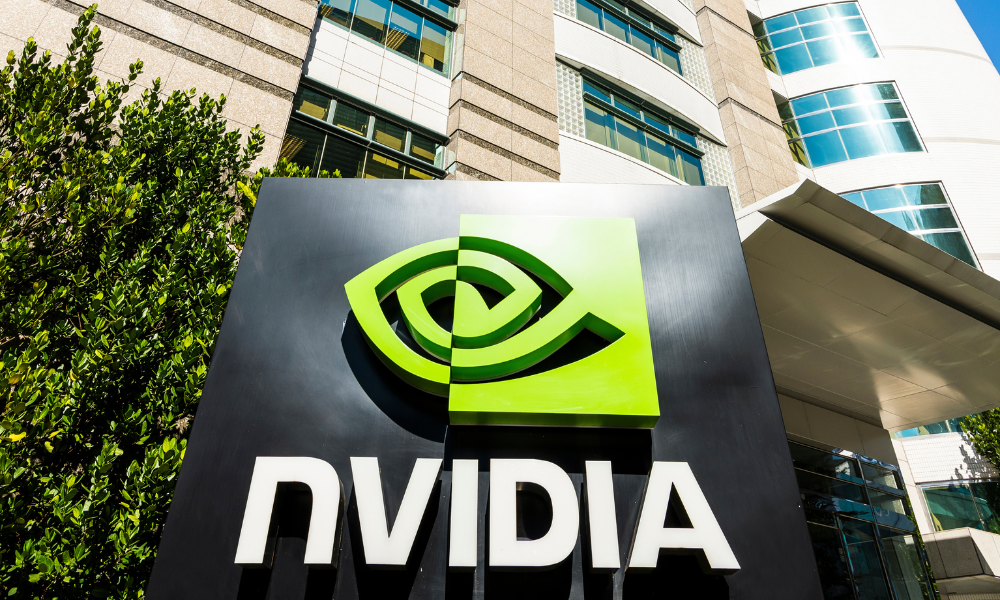Nvidia shares jump after export hit fails to dent US$39.1bn data centre sales and strong Q2 outlook

Nvidia delivered fiscal first-quarter revenue of US$44.06bn, up 69 percent year-over-year and ahead of Wall Street expectations, according to data compiled by LSEG and reported by CNBC.
Adjusted earnings per share came in at 96 cents, topping the 93-cent consensus, while diluted earnings per share settled at 81 cents after a US$4.5bn charge related to US export restrictions on H20 chips to China.
Despite the inventory hit and missed revenue from China, Nvidia shares rose nearly 5 percent in after-hours trading, as investors focused on continued demand and strong forward guidance.
The company projected fiscal Q2 revenue of US$45bn, plus or minus 2 percent, as per Reuters.
CEO Jensen Huang described the demand for Nvidia’s AI infrastructure as “incredibly strong,” noting in the earnings release that “AI inference token generation has surged tenfold in just one year.”
Data centre revenue reached a quarterly record of US$39.1bn, increasing 73 percent from a year ago, with large cloud providers accounting for nearly half of that segment, according to Yahoo Finance.
CFO Colette Kress confirmed during the analyst call that “Microsoft has already deployed tens of thousands of Blackwell GPUs and is expected to ramp to hundreds of thousands,” with OpenAI named as a key customer.
Blackwell contributed nearly 70 percent of data centre compute revenue in the quarter, and Kress called the ramp “the fastest in our company's history.”
While overall performance exceeded expectations, Nvidia’s exposure to China continued to raise concerns.
According to Bloomberg, Nvidia missed US$2.5bn in sales in Q1 due to the H20 ban and expects another US$8bn revenue impact in Q2.
Huang stated during the call, “The US$50bn China market is effectively closed to US industry. The H20 export ban ended our Hopper data centre business in China.”
He added, “We cannot reduce Hopper further to comply” and said, “China's AI moves on with or without US chips.”
Huang criticised current policy assumptions, saying during the call that “export restrictions have spurred China's innovation and scale.”
He added, “The question is whether one of the world's largest AI markets will run on American platforms,” arguing that restrictions only strengthen Chinese competitors and weaken America’s global position.
As reported by Business Insider, Kress warned that export controls “would have a material adverse impact on our business going forward, and benefit our foreign competitors in China and worldwide.”
She added that losing access to the China AI accelerator market—expected to grow to nearly US$50bn—poses a significant risk.
Despite geopolitical constraints, Nvidia has been expanding in other regions.
Reuters reported that the company signed partnerships in Saudi Arabia, Taiwan, Sweden, and the UAE.
Huang said the company has a “line of sight to projects requiring tens of gigawatts of Nvidia AI infrastructure,” including a 10-square-mile data centre site in the UAE.
Huang also praised US President Donald Trump’s move to rescind a Biden-era AI diffusion rule, stating during the call that Nvidia shares the vision to reshore advanced manufacturing.
“We’ve made substantial, long-term purchase commitments, a deep investment in America’s AI manufacturing future,” he said.
Kress noted that Nvidia has US$29.8bn in manufacturing commitments. More than half of the company’s revenue comes from international markets, with Singapore its second-largest after the US, according to Yahoo Finance.
Nvidia’s sales to China (including Hong Kong) fell to 12.5 percent of total revenue, down from roughly 15 percent in the prior quarter.
Additional segments also showed growth. Nvidia’s gaming division increased 42 percent to US$3.8bn, and its automotive and robotics unit grew 72 percent to US$567m.
The professional visualisation segment rose 19 percent to US$509m. Net income rose 26 percent year-over-year to US$18.8bn.
The company spent US$14.1bn on share repurchases during the quarter and paid US$244m in dividends, as per CNBC.
Other stocks saw movement amid Nvidia’s earnings. Abercrombie & Fitch jumped 14.7 percent after beating analyst estimates.
Dick’s Sporting Goods rose 1.7 percent, while GameStop fell 10.9 percent following its disclosure of a US$500m bitcoin purchase.
Okta dropped 16.2 percent despite surpassing expectations, and Macy’s declined 0.3 percent after cutting its profit forecast due to tariffs and slowing consumer spending, according to BNN Bloomberg.
Markets overall were muted.
The S&P 500 dropped 0.6 percent to 5,888.55, the Dow Jones Industrial Average fell 244.95 points to 42,098.70, and the Nasdaq composite slipped 0.5 percent to 19,100.94.
The 10-year Treasury yield edged up to 4.47 percent.



